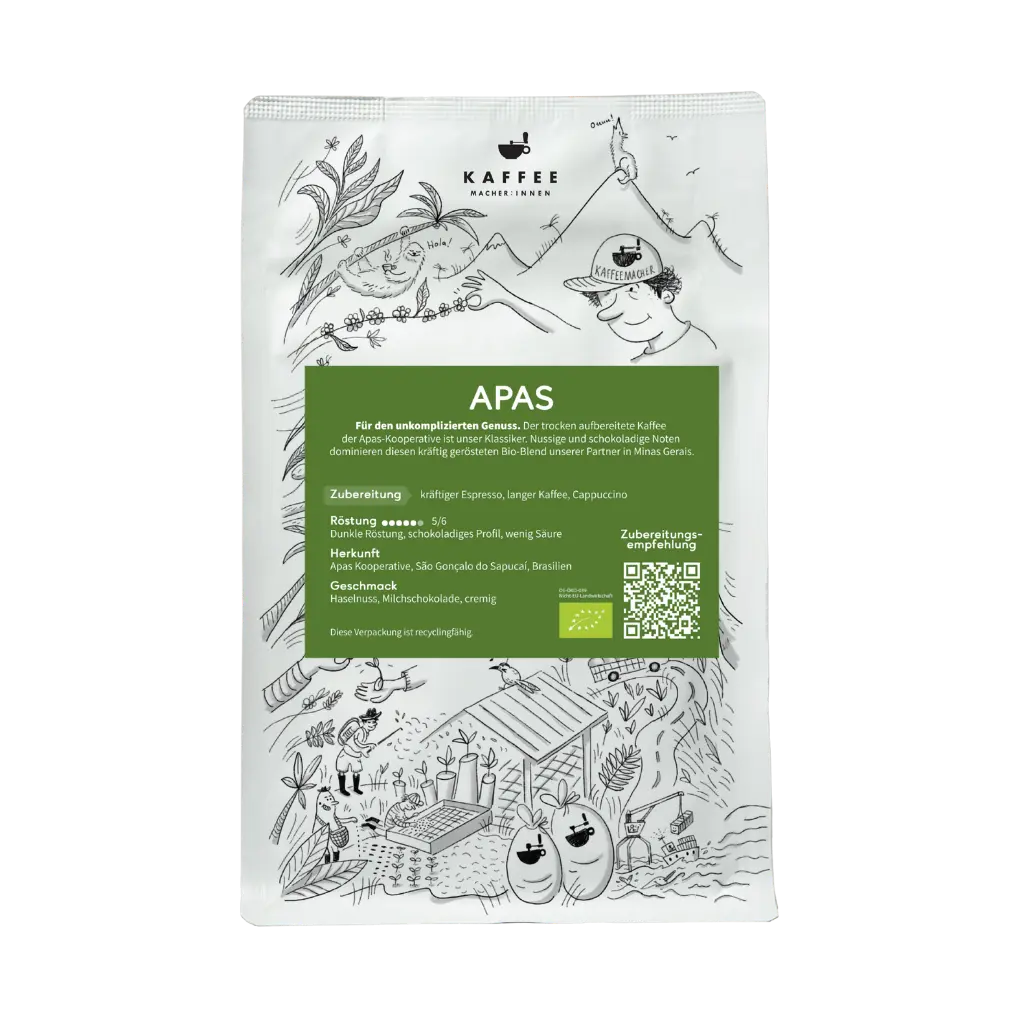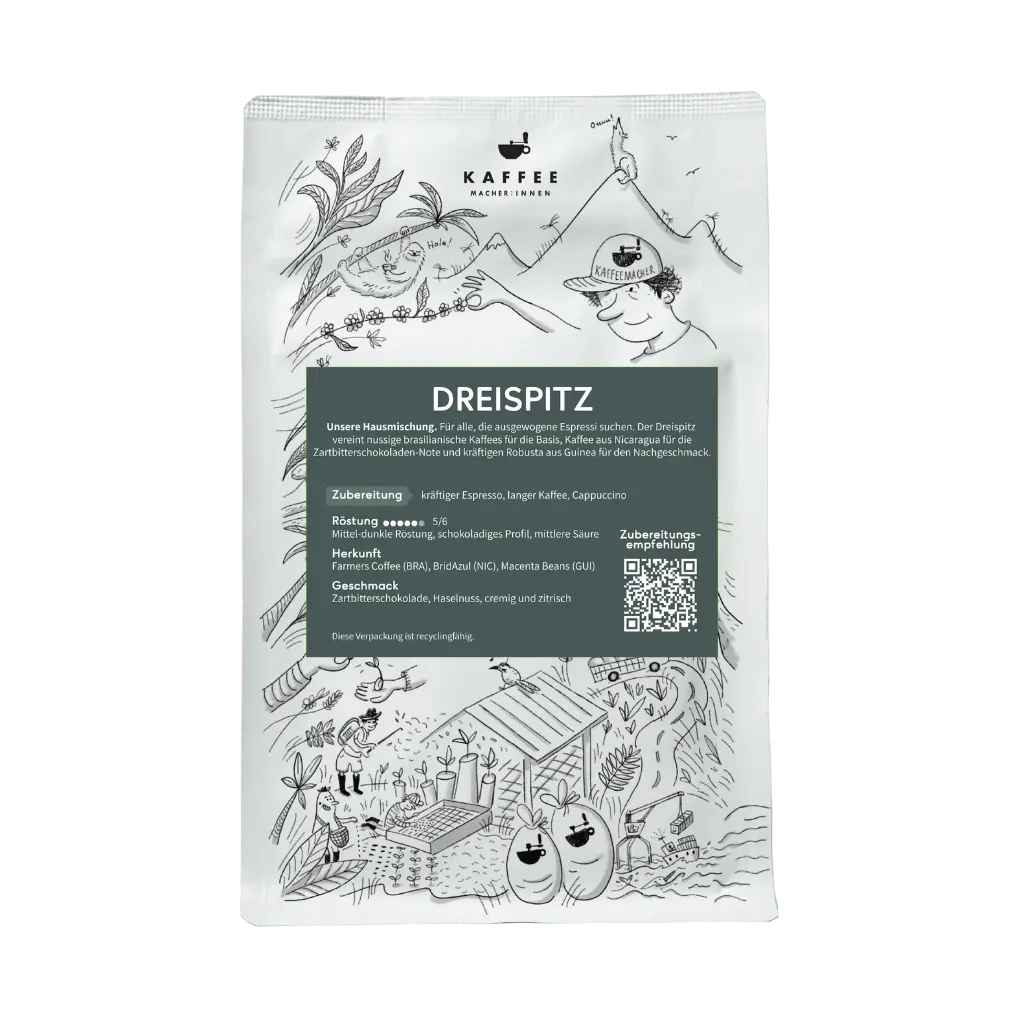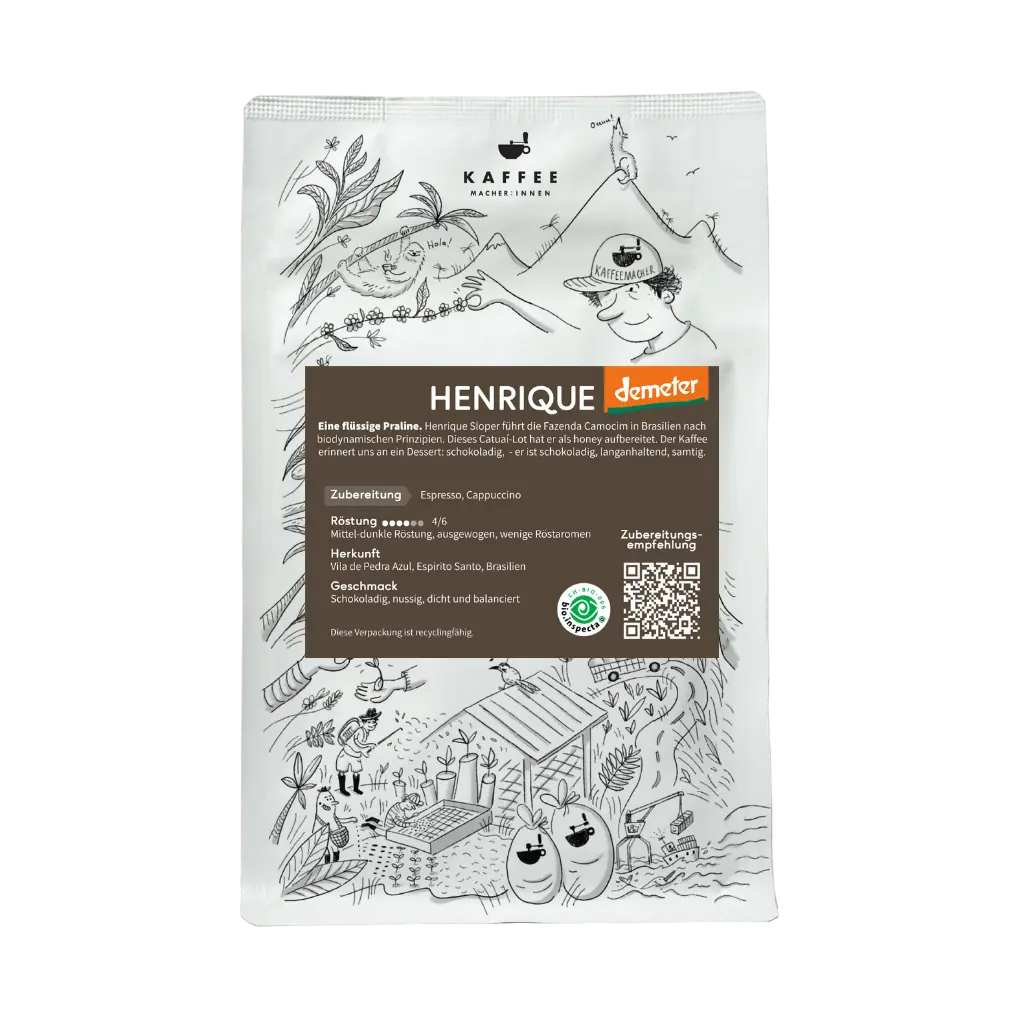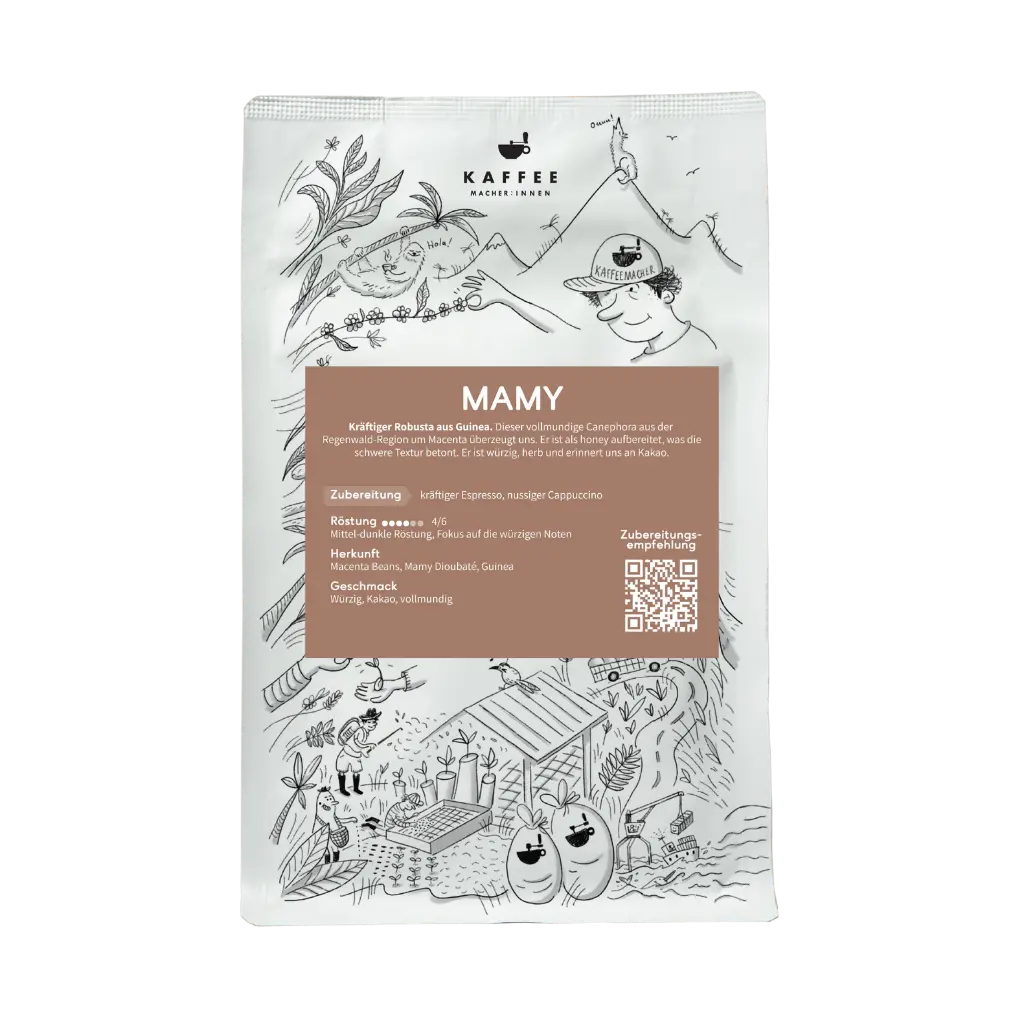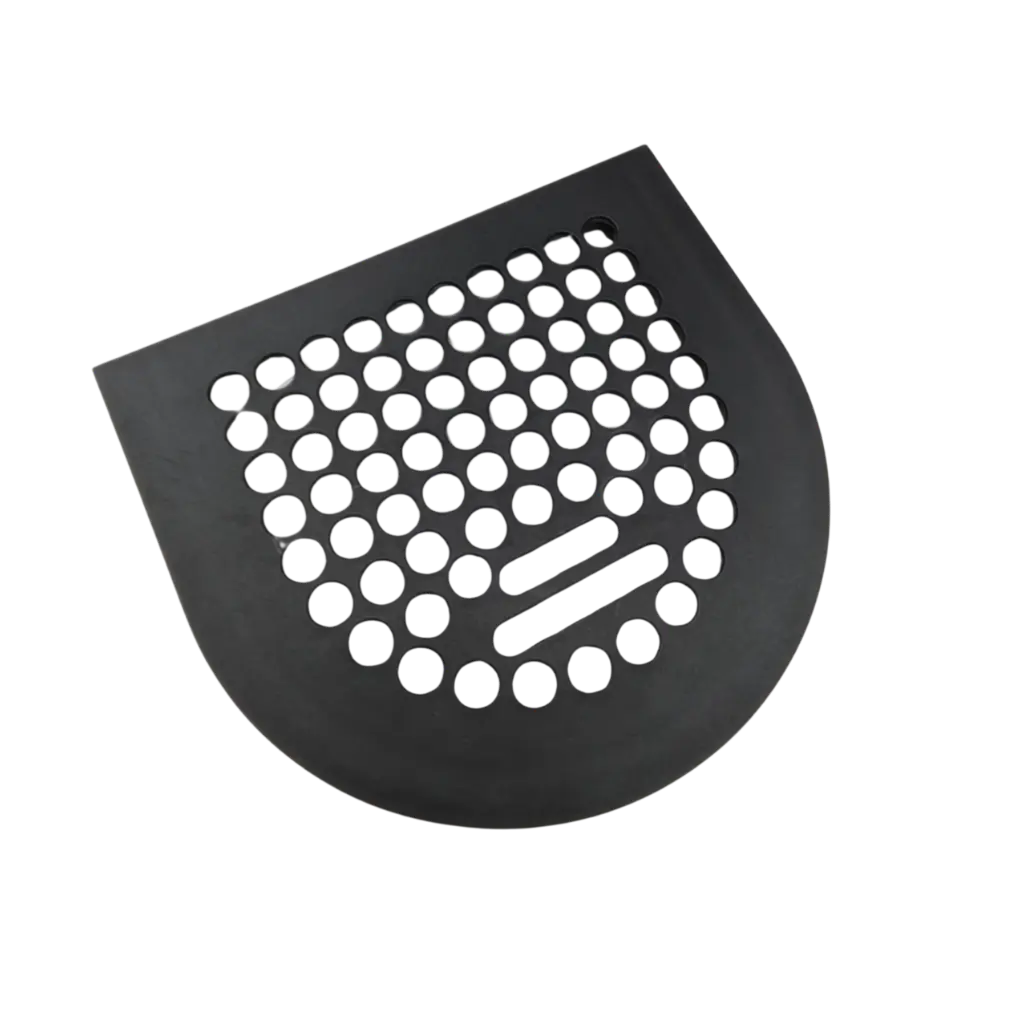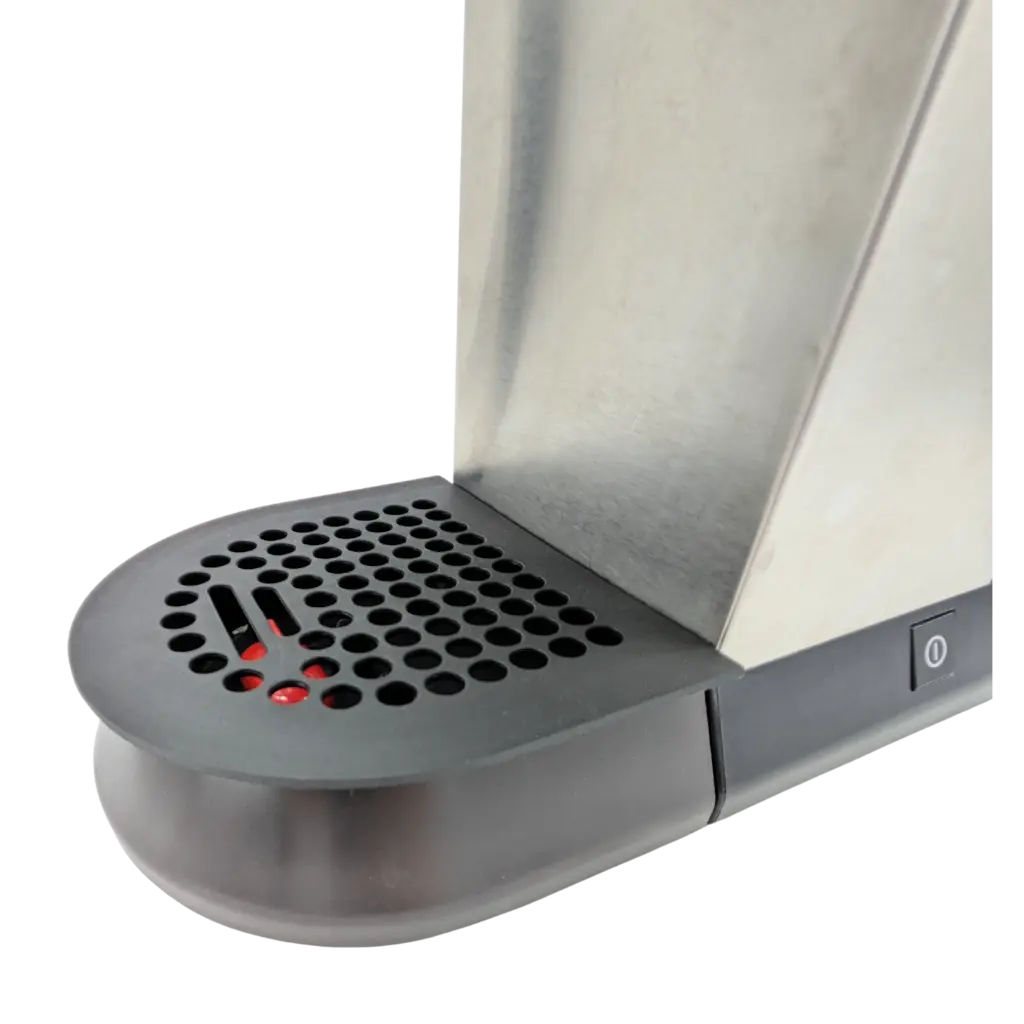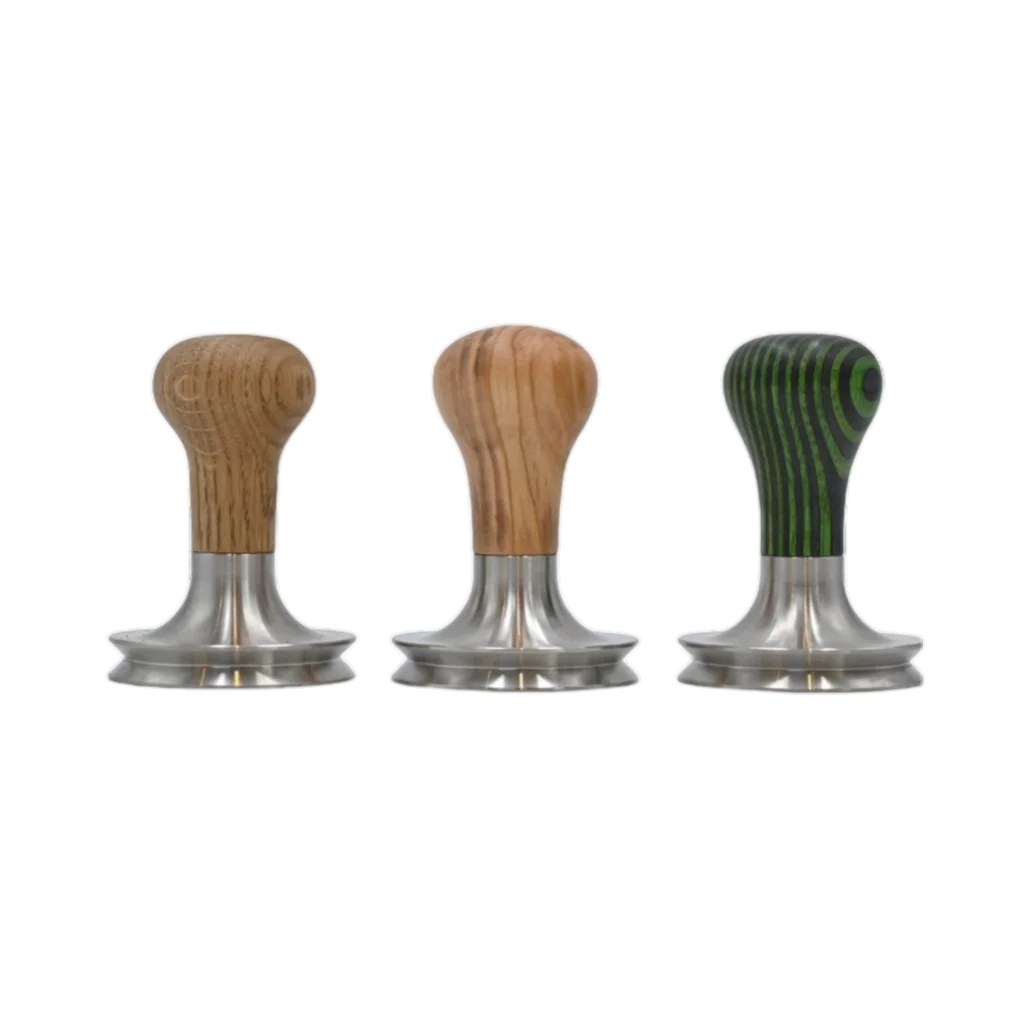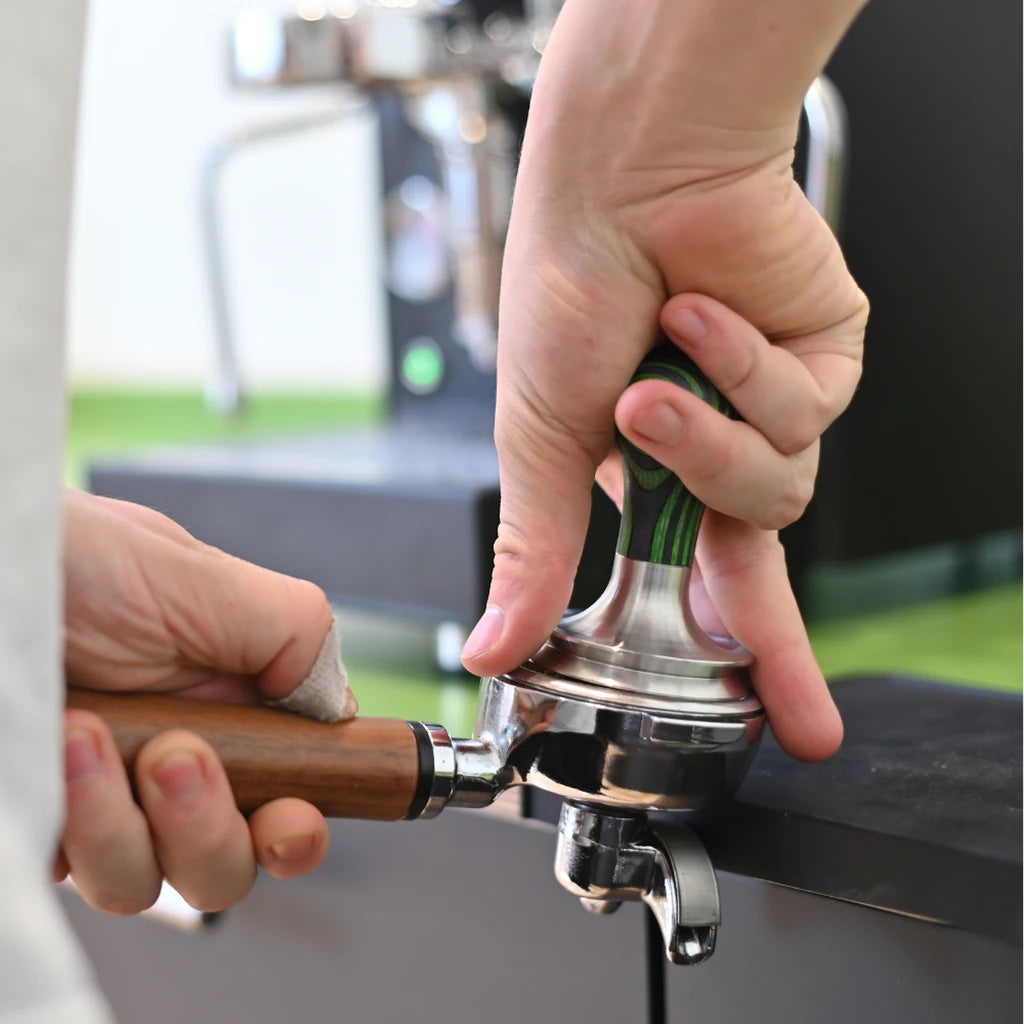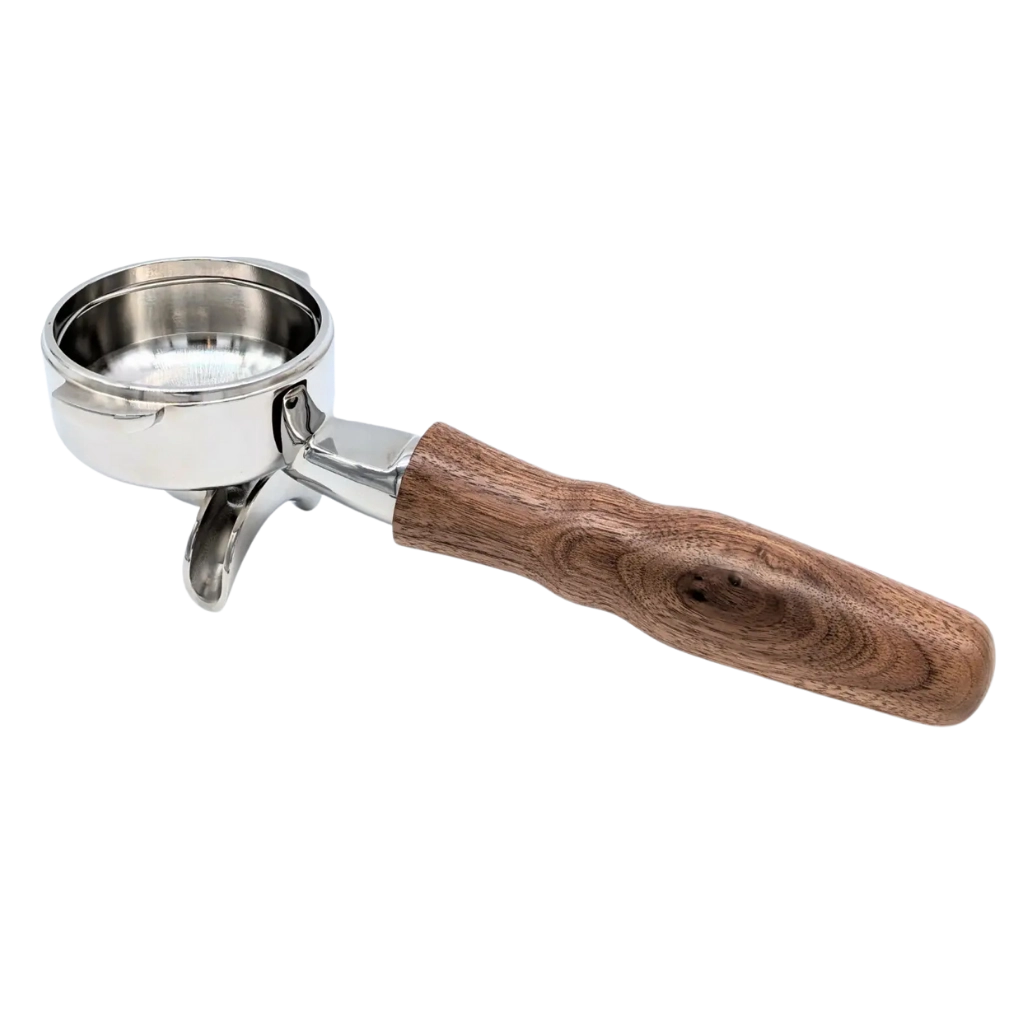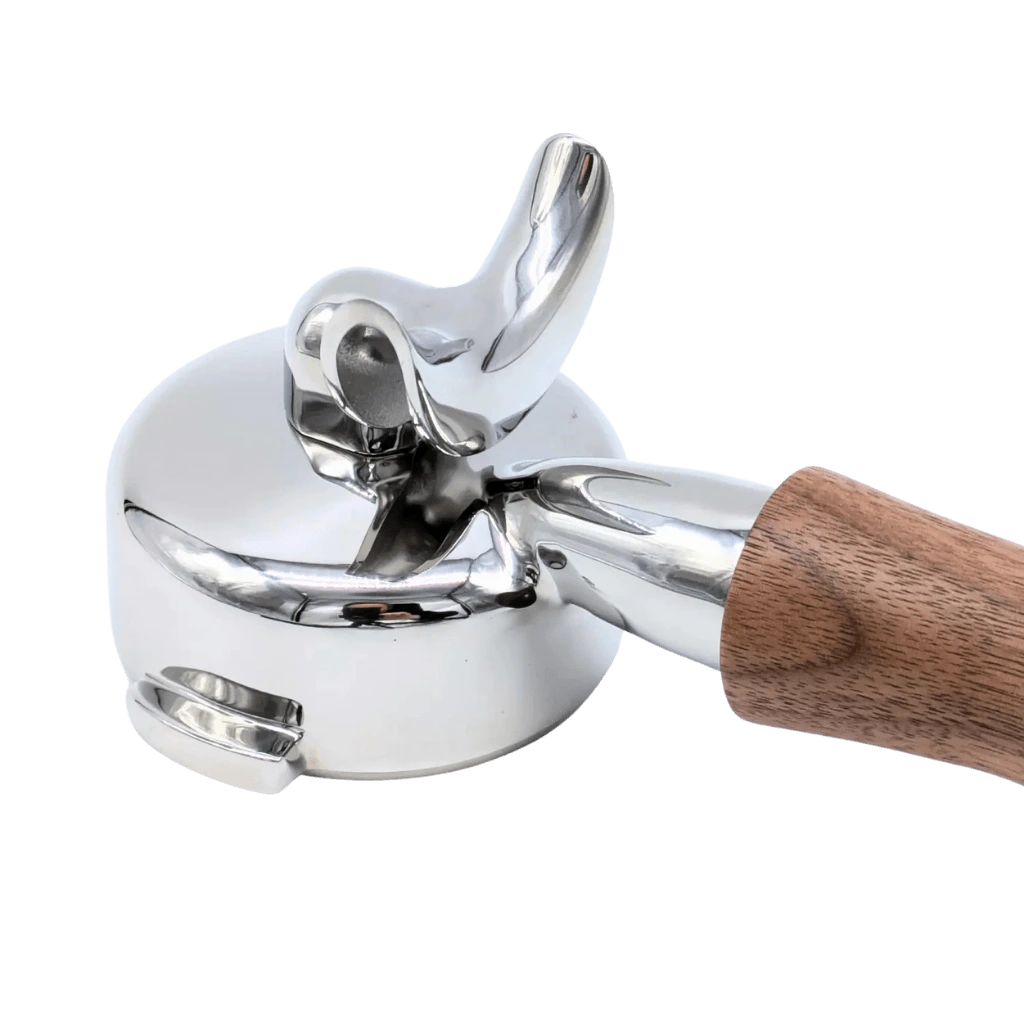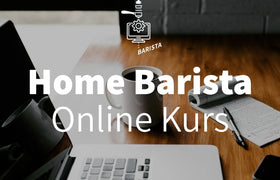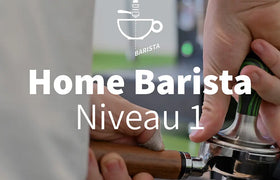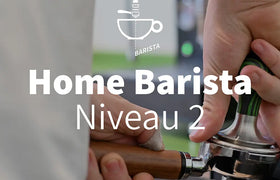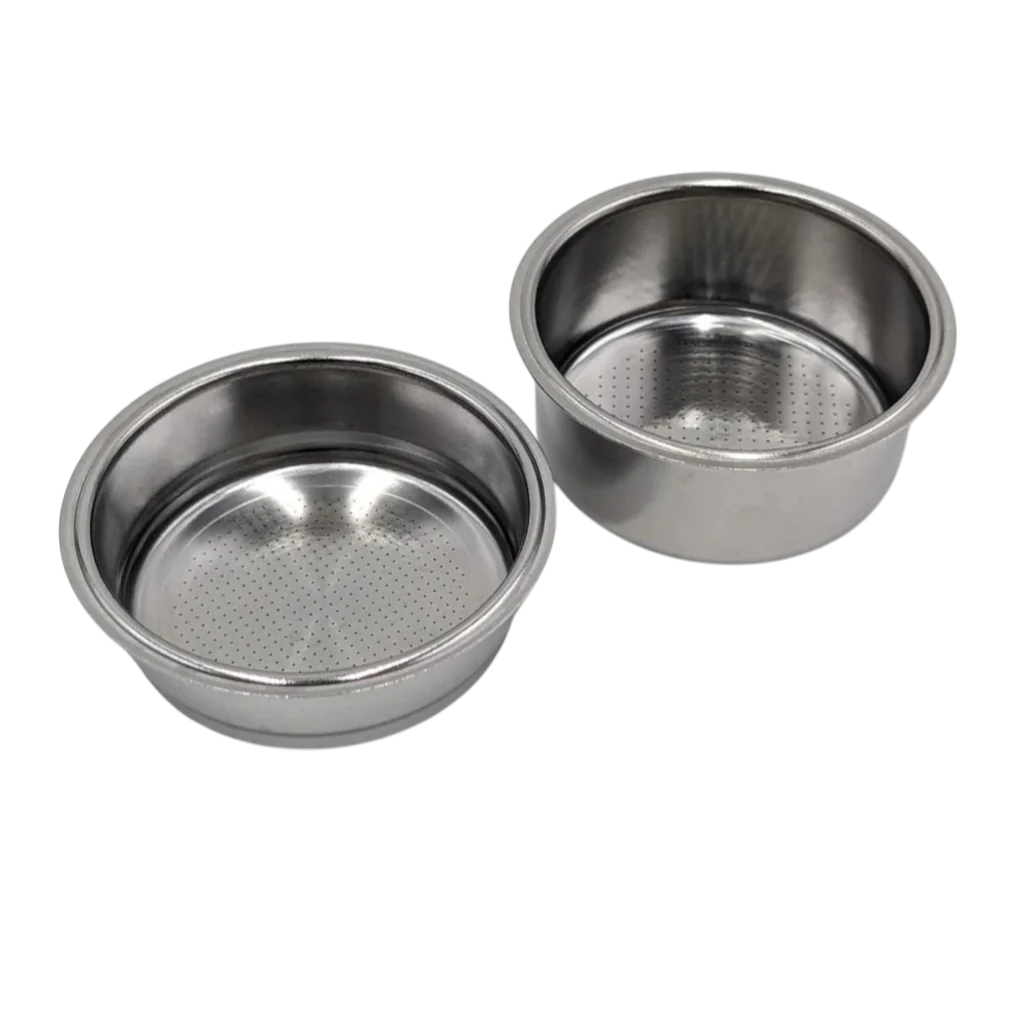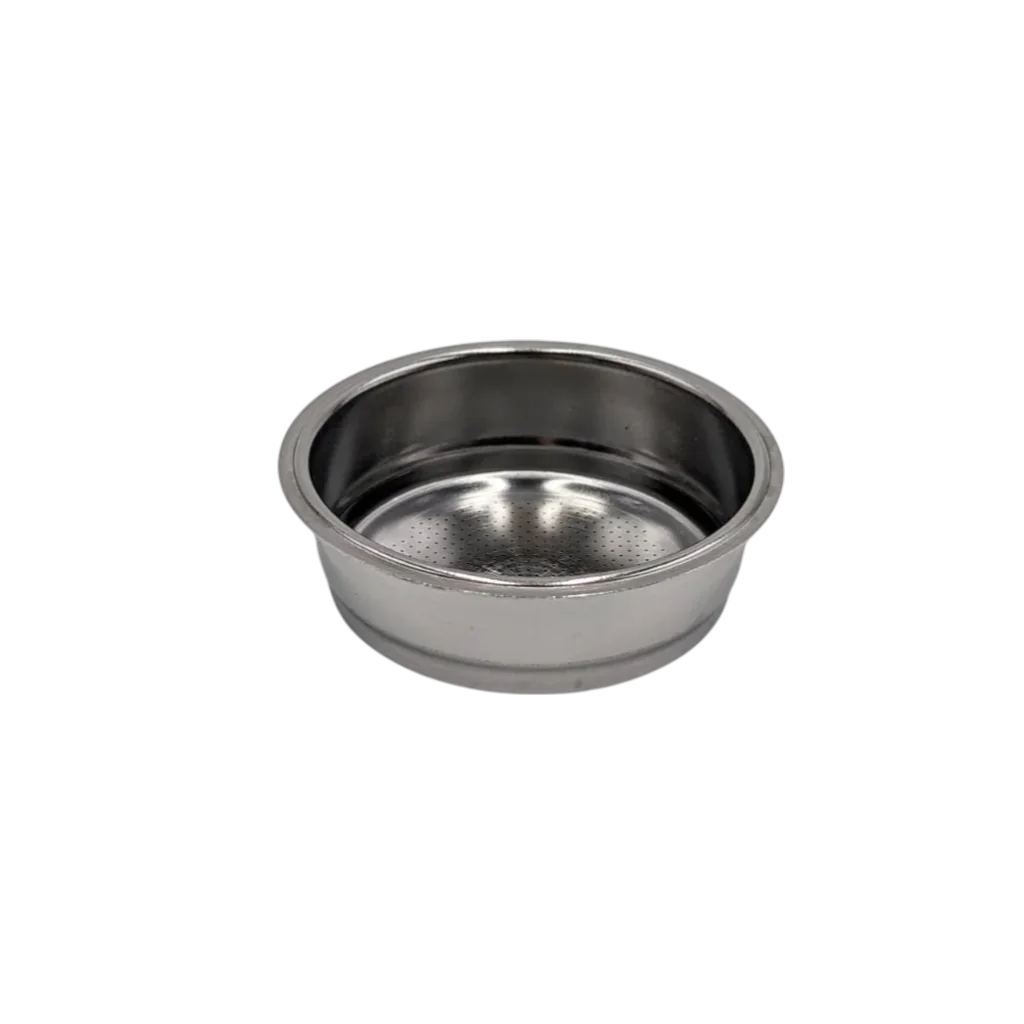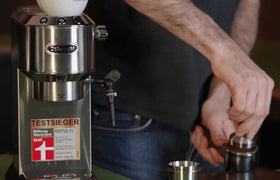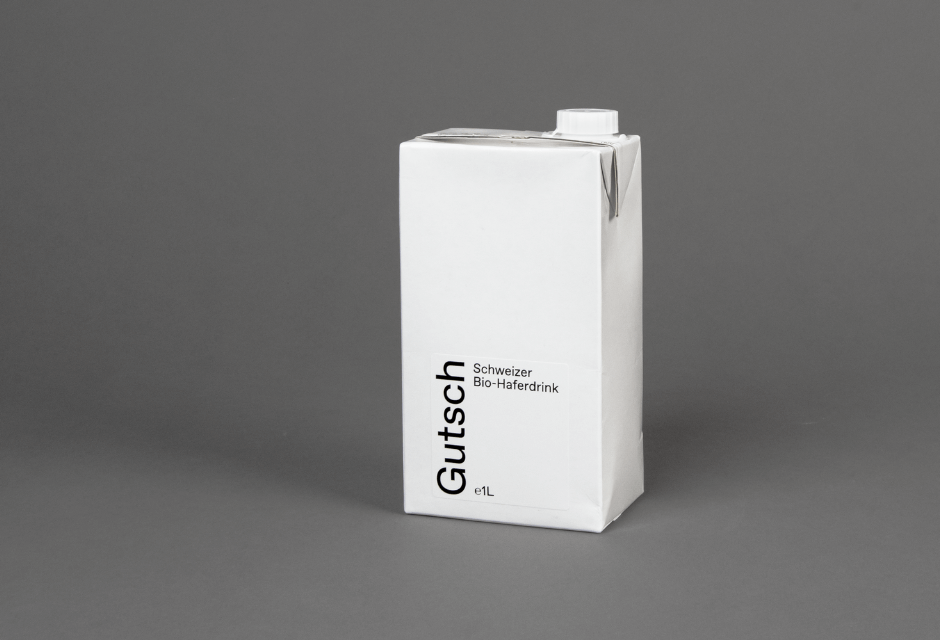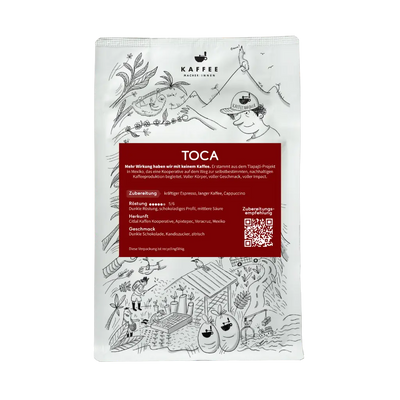In November 2021, the Gutsch Cooperative launched the first Swiss organic oat drink, specially developed for coffee beverages. We co-founded the cooperative with other coffee companies. In doing so, we are setting an example for Swiss organic farming, more conscious consumption, and meaningful collaboration with other companies.
"Water from Schlieren, not Sweden" was Gutsch's internal motto for a long time, until it began to gain widespread acceptance and eventually served as a conversation starter with interested parties. An oat drink consists of approximately 90% water; the rest is processed oats, oil, salt, and, in Gutsch 's case, red algae. Soyana in Schlieren near Zurich bottles the drink for Gutsch, where the water also comes from.
Oat drinks, which are particularly popular in the specialty coffee industry, largely originate from England, Sweden, or Denmark. The oat drink market is currently moving rapidly and is becoming increasingly diversified, with new products coming onto the market every year.
Soyana products are very popular in Switzerland; we've served them for years at Café Frühling and the Kaffeemacher Café at Basel's SBB railway station . Emmi recently launched Beleaf, an oat drink made with Swiss oats (non-organic), and industry insiders say more drinks are coming to market.
So it was hardly surprising that we, with Gutsch , received an early rejection from an organic wholesaler, stating that they weren't interested in resale. Fortunately, because this significantly shaped Gutsch's approach. We had to look for channels other than resale to wholesalers.
Oat drink from Switzerland - still extremely rare
Gutsch isn't the first organic oat drink made with Swiss oats – the drink from Lebenshof Aurelio quickly gained many fans, as did the oat drink from Biohof Hübeli . These projects were the first in Switzerland to use organic oats. More products are likely to follow soon, and above all, the market is now becoming attractive to larger bottlers.
With Gutsch, we had a clear focus: we wanted to enter the restaurant industry—we wanted to go where we ourselves had a need. Go where we had contacts, go where we knew the requirements for an oat drink in the coffee industry. So we took the appropriate alternative into our own hands. And Gutsch had to be organic—that was always clear.

Photo: Boris Müller, from the Tagesanzeiger Instagram channel
Focus on gastronomy
We and Gutsch have stipulated in our statutes that we will not enter the traditional retail market. The first inquiry from a supermarket came just six days after the launch – so the demand for a Swiss organic oat drink is there.
In order to be able to sell the large quantities of a private label production, we served the hospitality industry from the very beginning. This allowed us to supply various cafés and restaurants with the first three test runs of 50,000 liters and receive direct, candid feedback. One week after the launch in November 2021, we were already supplying Gutsch to over 30 establishments. All establishments serving Gutsch must be members of the cooperative—this is a requirement.
The Gutsch cooperative as a basis
We chose the cooperative model because we see Gutsch as a community project. Equal rights, equal voting rights, and a strong sense of grassroots democracy. Membership in the cooperative is gained with a share certificate of CHF 500 (companies) or CHF 250 (patrons). This model of issuing shares served as our seed loan. We tried not to set up Gutsch like a food startup. This eliminated the external investment model. We also wanted to have the people at the helm of Gutsch who support Gutsch – and these are the cooperative members.
Soyana - the private label bottler for Gutsch
Within a year, Gutsch was ready for market. From the initial discussions with Soyana, through formula development, design, and the establishment of the supply chain, the lead team was Philipp Schallberger (coffee maker) and Mathias Bühler from Adrianos Kaffeebrennerei in Bern .
Soyana is a pioneer in plant-based drinks in Switzerland. Founder Walter Dänzer was a friend of the Gutsch project from the very beginning and is now a member of the cooperative himself.

Soyana Managing Director Walter Dänzer in conversation with Sascha Britsko from Tages-Anzeiger
The article from the Tagesanzeiger from November 5th is available at this link: Gutsch Reportage
The Design - Final Project by Sara Dietrich
With Gutsch, we wanted to explore a different path, including the design. Sara was just about to complete her bachelor's degree at the Lucerne School of Art and Design. We contacted Sara, and she took on Gutsch. Sara designed the entire brand language, the typeface, the corporate design, the website, and the "actual" packaging.

But why does Gutsch now just look white?
As is often the case, it's for technical reasons. The minimum order quantity for a custom pack is several hundred thousand. We didn't want to make that investment and looked for alternatives. The white pack is now the blank that the manufacturer is providing us with. Feedback from production was mixed; it "still looks a bit special"—at that point we knew it was the right fit.
Sara Dietrich's entire work can be viewed here .
Will we ever put Gutsch in Sara's packages?
The white packaging is a temporary solution, which we're now very happy with. It's simply different. But Sara's packaging is the goal – the more you all drink Gutsch, the closer we get to bottling Gutsch in Sara's Tetra Paks in the future, inspired by the Swiss industrial design of the 1970s.
Gutsch - where to buy it? And how much does Gutsch cost?
- The Gutsch cooperative sells to its members
- Cooperative members serve Gutsch in their businesses and/or can resell Gutsch to private individuals.
- List of sales outlets
Prices for end consumers range from CHF 3.70 to CHF 3.95/l. Each farm decides its own selling price within this range, based on its own expenses.
The selling price of Gutsch to cooperative members varies between CHF 2.40/l and CHF 2.80/l, depending on the quantity ordered.
The Gutsch Cooperative
More benefits for everyone – that's what we decided at Gutsch . The more businesses that join Gutsch, the better the conditions become for everyone. That's the goal of a cooperative. On our website, we write:
Together we can make progress. The more people participate in the Gutsch Cooperative, the more attractive the conditions are for everyone. The cooperative has the signaling effect of a movement. The more cafés in Switzerland work together for the same cause, the more incentives are created to produce organic oats. And we all benefit from that.
- Co-Managing Director Mathias Bühler
and Philipp Schallberger
-
Further links:
Tagesanzeiger report: https://www.tagesanzeiger.ch/jetzt-kommt-die-schweizer-biohafermilch-890018745704
Article by Benjamin Hohlmann: https://www.benjamin-hohlmann.org/blog/gutsch-hafermilch/



